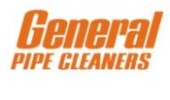
Ontario’s new recycling Bill: What it means to industry
December 2, 2013 | By HPAC Magazine
CIPH issues information sheet on Bill 91, plans to lobby for changes.
The Canadian Institute of Plumbing and Heating (CIPH) will particpate in a lobbying event on December 4 to suggest changes and improvements to Bill 91, Waste Reduction Act, 2013. The Ontario Ministry of the Environment introduced Bill 91, which is an Act to establish a new regime for the reduction, reuse and recycling of waste and to repeal the Waste Diversion Act, 2002, for comment and feedback in June 2013. The Bill is currently undergoing second reading in the Legislature and is anticipated to be assigned to Committee before the end of the year.
In summary reports CIPH, the impacts to the industry are:
Bill 91 would prevent the use of visible ecofees to recover recycling costs. This would eliminate a valuable tool for consumer education. The Bill forces the use of hidden fees, which generates artificial inflation as product prices are marked up in a non-transparent manner through the supply chain. For wholesale distribution companies with national pricing strategies, the impact could create costly complexities to their pricing programs.
Specific to the plumbing and heating sector is the use of professionals to decommission and recycle old systems. Bill 91 would cause confusion regarding the legal responsibilities and liabilities of participants in Ontario’s waste reduction programs. The definitions of the responsible “producer” and “intermediary” are incomplete and the responsibilities of both entities are unclear. The lack of connectivity between these two entities would make producer responsibilities for reporting recycling activity difficult and convoluted.
Due to the lack of clarity in the definitions, the risk of double paying ecofees for a single product is realistic where the responsible manufacturer and their wholesale distributors pay in to a program. An interpretation of the Bill may affect how the supply chain currently pays for paper and plastic recycling.
4. Bill 91 would create a Waste Reduction Authority (WRA). Functions such as monitoring and enforcement can be managed directly by the Ministry, in a manner similar to other provinces. The creation of another agency would add a cost burden to the responsible paying organizations.
Currently the only positive impact of the Bill is that it would recognize and not interfere with existing approved stewardship plans like the industry run thermostat recovery program (Switch the ‘Stat).
CIPH has joined the Coalition for Effective Waste Reduction in Ontario (CEWRO) to lobby the Province to reconsider Bill 91 and the execution of a program in Ontario. The 14-member coalition consists of trade associations of varying sizes and scopes. The recommendation is for industry-run stewardship programs operate without burdensome and costly overarching regulatory agencies. Where programs are already being self-run, and are observed to meet provincial targets, no formal programs need to be developed. Alternate methods to evaluate and measure compliance in these sectors must be developed with industry to meet the intent of the regulation.
CEWRO members plan to participate in a lobbying event on December 4 to offer MPPs some critical considerations to change Bill 91.
For more information, e-mail Kevin Wong, program coordinator at k.wong@ciph.com.




